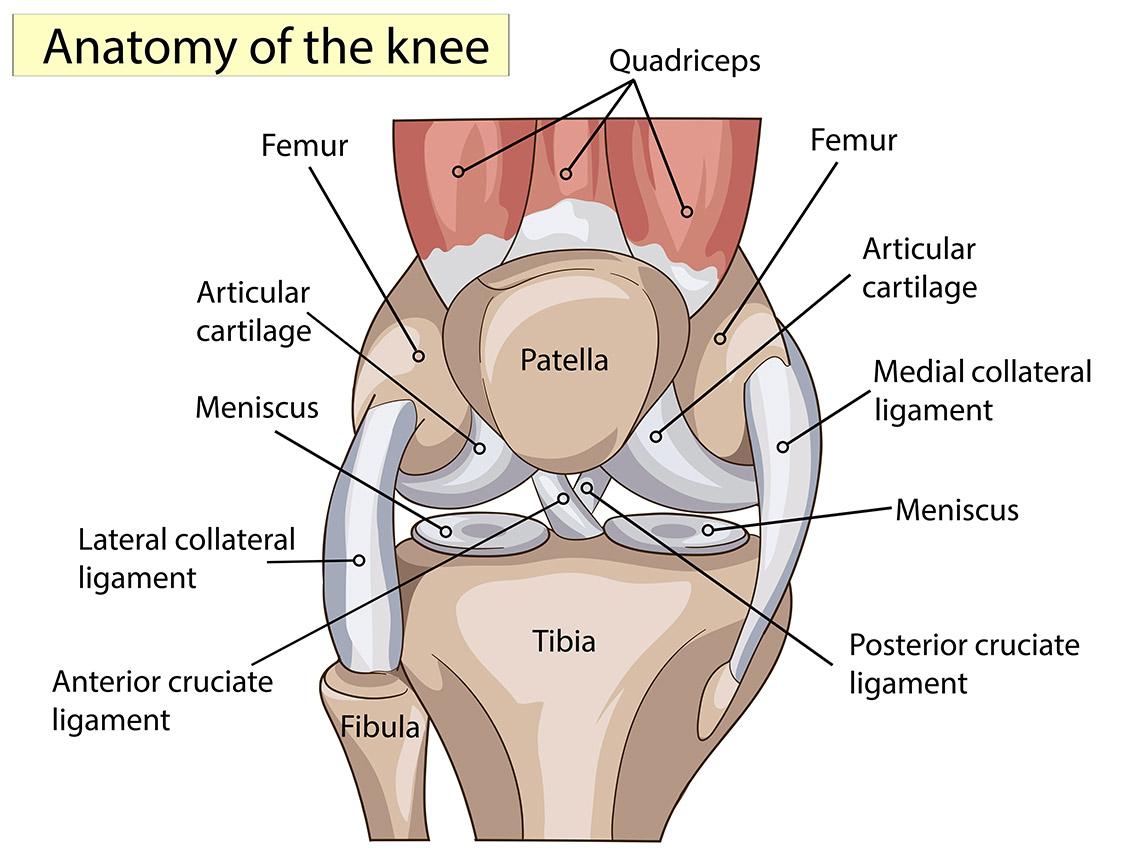What Does a Knee Ligament Injury Feel Like?

January 2022
Knee ligament injuries are fairly common injuries for both athletes and people who don’t frequently participate in high-impact activities. They can be the result of trauma, such as a car accident, but may also be caused by sports mishaps, like the one Tom Brady experienced.
The Tampa Bay Buccaneers quarterback endured the entire 2020 season with a torn medial collateral ligament in his left knee. While Brady’s endurance and determination may be admirable to some, the fact that he needed surgery to recover from his injury shows that knee ligament injuries should not be taken lightly.
His experience also demonstrates why you should see an orthopaedic or sports medicine specialist as soon as you expect something may be wrong. Some knee ligament injuries will be immediately obvious, but others may worsen over time until serious intervention is required. The earlier you seek help the better your treatment outcome is likely to be.
There are several non-invasive or minimally invasive treatment methods for knee ligament injuries, and many patients make a full recovery from this type of injury if they get enough downtime to heal.
Types of Knee Ligament Injuries
Knee ligaments are made of flexible connective tissues that connect the thigh bones to the lower leg bones. There are four different ligaments in the knee that are susceptible to injury:
- The anterior cruciate ligament (ACL) in the center of the knee is most prone to injury
- The posterior cruciate ligament (PCL) on the back of the knee is rarely injured
- The medial collateral ligament (MCL) stabilizes the inner knee
- The lateral collateral ligament (LCL) stabilizes the outer knee
Warning Signs That You May Have a Knee Ligament Injury
The most common symptoms indicating a knee ligament injury include pain, swelling, popping and buckling of the knee. The pain may increase when you try to move your knee or walk. The pain may radiate from specific parts of the knee depending on which ligament was injured. For example, an MCL injury will cause pain inside the knee, while an LCL injury will cause pain on the outside of the knee.
How Do I Know My Knee Ligament Injury Is Serious?
You may feel severe and lingering pain in your knee. This pain may be accompanied by swelling and buckling of the knee. Your knee may also become uncharacteristically deformed. In severe cases, you won’t be able to walk, fully bend or extend your knee.
You should not ignore or wait for these symptoms to pass. Instead, seek medical care immediately to prevent your condition from worsening.
How to Diagnose a Knee Ligament Injury?
Your doctor will most likely discuss your medical history, activity level and daily habits to determine the cause of your injury. In many cases, patients know exactly when their knee injury occurred. Depending on the severity of your condition, your orthopaedist may also recommend X-rays or an MRI to rule out fractured or broken bones.
Treatment of a Knee Ligament Injury
If you’re experiencing mild to moderate knee pain and you haven’t suffered a loss of stability, chances are your injury is not profoundly serious and might heal on its own. However, there are several things you can and should do to foster and accelerate the healing process.
Let your knee rest. This may be difficult at first if you’re used to a lot of physical activity but is crucial to a full and speedy recovery.
You can take anti-inflammatory over-the-counter medication, like aspirin or ibuprofen. These drugs can provide temporary relief from pain and swelling but should only be used for a brief period.
Icing your knee for approximately 30 minutes several times a day may also reduce the pain and swelling in your knee and may be a safer alternative to taking medication.
Once you start to recover, it may be helpful to wear a knee brace when moving about. Wearing one will keep your knee stabilized and reduce your risk for another injuries.
How Long Does Recovery from a Knee Injury Take?
Each knee ligament injury is different. The recovery time will vary depending on the severity of your injury and how well you’ve followed your doctor’s recommendations. You should never rush the recovery process. Allow your body as much time as it needs to heal.
Knee Ligament Injury Treatments at Non-Surgical Orthopaedics in Georgia
We offer non-surgical treatments of various orthopaedic injuries and conditions, including knee ligament injuries.
If you’re looking for a comprehensive exam and diagnosis, our highly qualified specialists will carefully examine your symptoms and recommend the most efficient treatment plan that caters to your unique condition.
If you’re in Marietta, Carrollton or the greater Atlanta area, call (770) 421-1420 for more information or schedule an appointment online.






